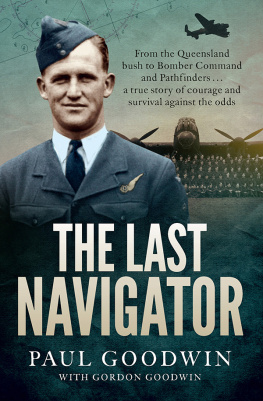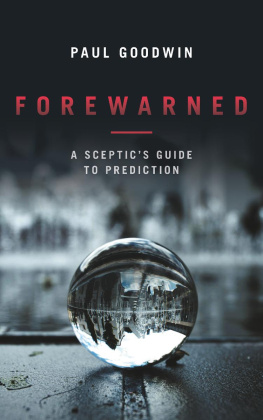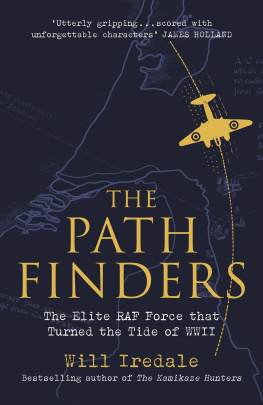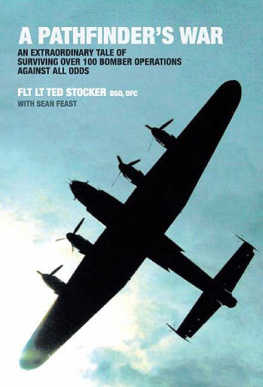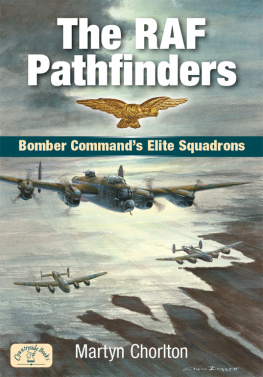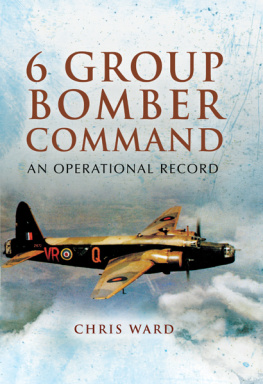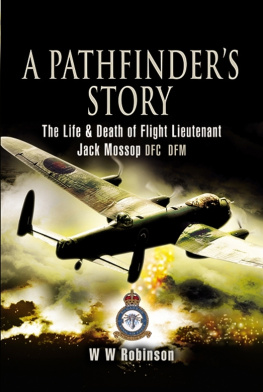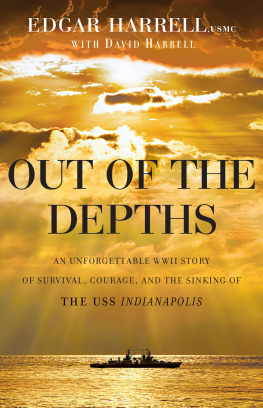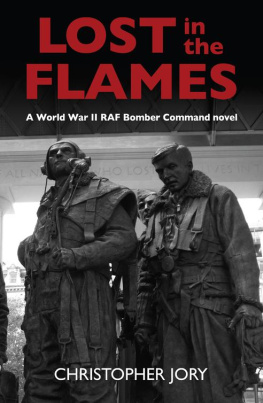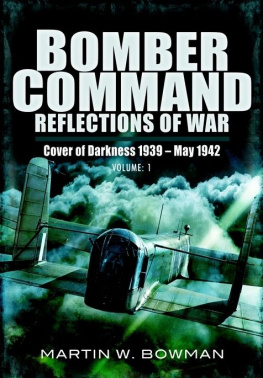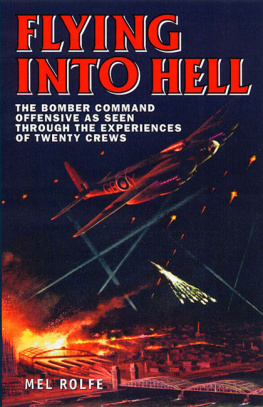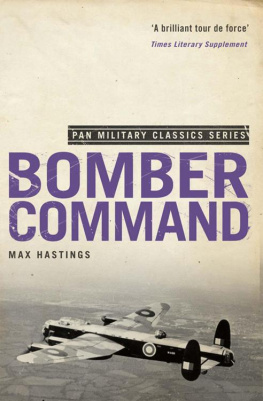
Churchill had even failed to mention Bomber Command in his victory speech of 1945. Some suggest it was the evident politics of the time, the hope for re-election. For those who had not been to war, there was perhaps a shame and shock at the revealed level of destruction to Germanys cities and people, at the conclusion of the war in Europe. My father felt that Churchill had perhaps been a little too sensitive to this sentiment held by some of the voting public. This great wartime leader was perchance fallible, open to the vanity of remaining popular in peacetime.
Having lived through the experience, my father, though a temperate man, left me in no doubt that the bombing was justified. He had little time for the armchair analysts who argued as to the level of brutality needed for victory. He reminded me, before the bombers were effectively brought into action through Pathfinders, that Hitler was on the point of victory, a ferocious contest delicately poised that could go either way. Post-war analysis by so-called experts did not have the raw experience of all-out battle, the desperate effort needed for survival.
My father knew that nothing short of annihilation could stop the German war machine. The relentless despot would never give up, even though it meant the destruction of the German people and their cities. There are no delicate half measures in warfare and to suggest a reduction in the area-bombing formula of Bomber Command towards the end of the war, would be like leaving a last cancerous piece of a malignant tumour to fester and grow.
After losing government, Churchill did finally recommend Bomber Harris for a peerage in 1946. However, the then Labour Prime Minister, Clement Attlee, ignored his entreaties. Both sides of politics had been complicit, too easily forgetting Britains darkest hour, when the motherland had teetered on destruction, an oppressive peace treaty with Hitler seeming the only option. Bomber Command and Pathfinders had stepped in to the fray to turn the tide of war.
Before his death in 1984, Sir Arthur Harris had given his permission and full backing for a commemorative medal. Although still not an official recognition of bravery, it allowed Bomber Commands stalwart commanders to pay tribute to their 125,000 brave aircrew and the untiring ground crews, airfield drivers, mechanics and armourers. In April 1985, under the tutelage of Lady Harris and Air Vice Marshall Bennett, this commemorative medal was struck, signifying the reward due to members of Bomber Command for their courage and skill. Lady Harris and Bennett were present at the mint to symbolically take off the production line the first and second medals created.
For my father, this medals ribbon brought back lasting memories in blue grey, midnight blue and flame. The vertical stripes represented the North Sea, the night sky over enemy territory, the flame of the target and the return trip. Brevet letters designating each of the aircrew, O, AG, E, B, WAG and N were contained on the face of this gleaming silver decoration. These were the letters originally included on the wings awarded to aircrew on completion of their flying training, worn on the left breast above medal ribbons. Laurel-wreathed, they surrounded the pilots designation on the medal, which was RAF surmounted by a crown, symbolic of their support for theirpilot and signifying the courage, team spirit and leadership of the time. The mighty Lanc glowed resplendent on the back.
Nearly half of those serving in Bomber Command had died during the war and too many of those who had survived had also passed on without due appreciation for all they had done. Bomber Command had made the difference. Not just those in the air but also those on the ground who had supported them valiantly in all weathers.
The memorial to Bomber Command was finally unveiled in Green Park, Central London by Her Majesty Queen Elizabeth II on 28 June 2012, in the year of her Diamond Jubilee. It is a 9-foot bronze sculpture of a seven-man crew in full flying kit, looking to the skies after a successful mission. It bears the inscription: We remember those of all countries who died in 3945, a gesture of reconciliation towards all cities on both sides involved in the conflict. The plinth of the memorial is imprinted with the following text by Pericles, the influential Greek statesman, orator and general during the Golden Age of Athens: Freedom is the sure possession of those alone who have the courage to defend it.
The opening ceremony was attended by 6000 veterans and family members of those killed. Avro Lancaster PA 474 dropped 800,000 red poppies over Green Park, reminiscent of the World War I poem In Flanders Fields, which refers to the red poppies that grew over the graves of the fallen soldiers. Those left had felt, somehow, once again united with those long gone.
Of particular note is the involvement in the campaign for recognition of Bee Gees singer Robin Gibb, part of an English-born pop group starting in Australia. This fine entertainer had fittingly given us such hits as Stayin Alive and was committed to keeping the memory alive of the 55,573 Bomber Command servicemen who lost their lives turning the tide of World War II against Germany.
There had been a growing groundswell, a call for a special campaign medal to recognise the 125,000 aircrew of Bomber Command and their supporting ground crews. The belated official service medal, the Bomber Command Clasp, was finally instituted on 26 February 2013, in due recognition of the brave men who took to the air with Bomber Command. It was awarded to aircrew members on aircraft who participated in at least one operational sortie in an RAF Bomber Command operational unit between 3 September 1939 and 8 May 1945 inclusive. This clasp is for attachment to the 193945 Star, already awarded. It is notable that the other clasp for sewing into the stars ribbon was instituted many years earlier in 1945. It was the Battle of Britain clasp.
Both clasps are struck in bronze and have a frame with an inside edge, perforated like a postage stamp. They are attached to a 32-millimetre ribbon, with equal vertical stripes, bands of navy blue, army red and air force blue, representing the equal contribution of all three service arms towards victory. It arrives in a simple blue box with the crown of Her Majesty Queen Elizabeth II embossed in gold on its face. Harris and Bennett did not live to see Bomber Command finally receive the recognition it deserved. It seems appropriate to include a small extract from the Special Order of the Day sent out by Arthur Harris on 12 May 1945, at the conclusion of World War II in Europe. His words ring out the unpleasant, but necessary, achievements of Bomber Command, in helping to turn around the Allies fortunes of war. I found this extract in my fathers papers, an old yellowing circular from The Pathfinder Force Association in Australia published in October 1990:
With it all you never ceased to rot the very heart out of the enemys war resources and resistance.
His Capital and near 100 of his cities and towns, including nearly all of leading war industrial importance, lie in utter ruin, together with the greater part of the war industry, which they supported.
Thus you brought to nought the enemys original advantage of an industrial might intrinsically greater than ours and supported by the labour of captive millions, now set free.
For the first time in more than a century you have brought home to the habitual aggressor of Europe the full and acrid flavours of war, so long the prerequisite of his victims.
In their twilight years, Philip and my father often shared some whimsical words about the time it took for Bomber Command to receive this recognition. They were both well aware that, during the war, they had overcome the odds stacked against them. Some of their compatriots had not been so fortunate. Philip and Gordon had been part of the remaining few, holding the mandate for justice. This is what had made the long-coming recognition of the Bomber Command Memorial and the final official granting of the Bomber Command Service Medal so special.
Next page
